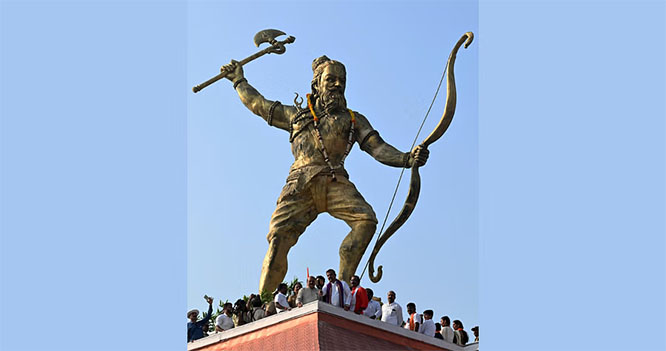
The United States will designate Yemen’s Houthi rebels as a terrorist group, Secretary of State Mike Pompeo said, a late-term move that aid groups fear will worsen the world’s worst humanitarian crisis.
With just 10 days left before President-elect Joe Biden takes office, the announcement on Sunday could complicate the new US administration’s efforts to restart diplomacy with Iran, which has ties to the Houthis and to reassess the US relationship with Saudi Arabia, which has led a brutal offensive in Yemen.
“The designations are intended to hold Ansar Allah accountable for its terrorist acts, including cross-border attacks threatening civilian populations, infrastructure and commercial shipping,” Pompeo said in a statement, using the official name of the Houthi movement.
It has led a campaign that has “killed many people, continues to destabilise the region and denies Yemenis a peaceful solution to the conflict in their country”, he added.
Pompeo pointed to a December 30 attack on an airport in Yemen’s second city Aden, which killed 26 people and was blamed by the Saudi-backed government on the Houthis.
The rebel group controls much of Yemen and is already under US sanctions.
But a designation as a terrorist group is expected to scare away outside actors from carrying out many transactions with Houthi authorities, including bank transfers and buying food and fuel.
The Trump administration has been piling on sanctions related to Iran in recent weeks, prompting some Biden allies and outside analysts to conclude that Trump aides are seeking to make it harder for the incoming administration to re-engage with Iran and rejoin an international nuclear agreement.
“I also intend to designate three of Ansar Allah’s leaders, Abdul Malik al-Houthi, Abd al-Khaliq Badr al-Din al-Houthi, and Abdullah Yahya al-Hakim, as Specially Designated Global Terrorists”, Pompeo added.
‘Significant move’
The Houthi group is the de facto authority in northern Yemen and aid agencies have to work with it to deliver crucial assistance. Aid workers and supplies also come in through Houthi-controlled Sanaa airport and Hodeidah port.
“This serves no interest at all,” Ryan Crocker, a retired US ambassador who served in the Middle East, said of the designation.
“Are there elements among the Houthis who have been involved in terrorist acts? Sure. Just as with other groups in the Middle East. The Houthis are an integral part of Yemeni society. They always have been. This is making a strategic enemy out of a local force that has been part of Yemen for generations. They are not Iranian pawns.”
The United Nations is trying to restart political talks to end the war between the Houthis and a Saudi-Emirati-led military coalition, and the US designation could create legal impediments for negotiations with the Houthis, who control the capital Sanaa and most urban centres.
“It is significant move because it will undermine any future peace efforts, because if you designate someone as a terrorist organisation you won’t be able to negotiate with it anymore,” Marwan Kabalan, director of policy analysis at the Arab Centre for Research and Policy Studies, told Al Jazeera.
“Nobody recognises the Houthis as a legitimate government of Yemen but they are a very important party to the conflict in the country, so if there are no talks with the Houthis peace will be very difficult to achieve in the country.”
Aid groups as well as members of Biden’s Democratic Party have warned the move will severely impede efforts to address what the UN calls the world’s largest humanitarian crisis.
Pompeo insisted the designations – which will come into effect a day before Biden takes office on January 19 – will not affect relief work.
“We are planning to put in place measures to reduce their impact on certain humanitarian activity and imports into Yemen,” Pompeo said.
“We have expressed our readiness to work with relevant officials at the United Nations, with international and non-governmental organisations and other international donors to address these implications.”








Comments
Add new comment